Library
All resources
761 – 780 of 2423 results

“Pinning down moving targets”: Adapting humanitarian cash programmes to the multi-pronged crises in Lebanon
Report
Whilst most humanitarian responses across the globe have had to navigate the impact of the Coronavirus pandemic, in Lebanon the challenges related to COVID-19 emerged on top of an unprecedented protest movement, political instability, a rapid deterioration of the economy and the increasingly protracted...

Cash and Voucher Assistance for Protection Outcomes in Mine Action
Report
Despite growing evidence that Cash and Voucher Assistance (CVA) can be a useful tool, where appropriate, to enhance the protection and resilience of individuals, households, and communities affected by crisis, Cash and Voucher Assistance is not widely used within Humanitarian Mine Action (HMA). This study...

Cash. Dignity. Agency.
Video
Watch the videos here Displaced people face higher rates of gender-based violence before, during, and after they are forced to move. The Women’s Refugee Commission (WRC) explores how cash transfers can be used in response to gender-based violence and its potential to help displaced persons, including...

Cash and Voucher Assistance for Adolescents: An evidence review of how cash and voucher assistance can achieve outcomes for adolescents in humanitarian settings
Report
During crises, the institutions, systems and community cohesion that normally support adolescent development break down. Humanitarian response often fails to take the necessary steps to mitigate and counteract the disadvantages that adolescent girls and boys in crisis face – including access to...

Cash transfer and child protection: An integrated approach to address the needs of unaccompanied and separated adolescents in the Central African Republic
Report
This report assesses Plan International’s Monetary Transfer and Child Protection Project in Central African Republic. It aims to understand the strengths and weaknesses of the programme, including implementation challenges and successes, benefits and associated risks for beneficiaries,and to identify...

Cash Transfer and Education: Supporting basic education for Syrian refugees and Egyptian host communities
Report
This report assesses Plan International’s Tawasol: Learning for Coexistence Project in Egypt to understand its strengths and weaknesses, including implementation challenges and successes, risks and benefits for beneficiaries, and any needs for continued capacity building. Plan International – with...

How to Incorporate Cash and Voucher Assistance into a Nutrition Response
Guidelines and Tools
There is a growing recognition that Cash and Voucher Assistance (CVA), i.e. the provision of cash transfers and vouchers to targeted beneficiaries, can contribute to improving maternal and child nutrition by impacting on the underlying determinants of adequate nutrition. The main purpose of this Guidance...

Beware of the Crocodile: Quantitative Evidence how Universal Old Age Grants distort the Social Assistance Systems of Low-Income Countries
Policy paper
This paper compares two approaches to establishing or improving social assistance systems in low and lower-middle income countries. Taking Eswatini and Lesotho as examples of the mainstream approach, it provides quantitative evidence on the social protection outcomes of social assistance systems that are...

Multi-Sector Market Assessment Guidance and Toolkit
Guidelines and Tools
Markets play a vital role in the lives of displaced persons and their host communities. Humanitarian actors increasingly rely on market-based programme responses to help crisis affected populations meet their needs through local markets. Market assessments should be an essential and integral part of the...

SPACE Economics of Early Response and Resilience to COVID-19: Ethiopia
Guidelines and Tools
The 2013 and 2018 Economics of Early Response and Resilience (TEERR) studies demonstrated the significant economic gains of investing in a more proactive response to crises. The first study was funded by DFID in 2013, followed by a more in-depth analysis in 2018 with USAID in three countries – Ethiopia,...

Cash and Voucher Assistance, Gender Equality and Gender-Based Violence Integration in Humanitarian Response Plans: Venezuelan Refugees and Migrants Case Study
Report
The case study was created with the inputs of the Regional Cash Working Group, supported by CashCap, and UNWOMEN’s regional gender focal point in the Response for Venezuelans. It demonstrates an example of meaningfully integrating gender and cash and voucher assistance at a response level. In October...

Establishing a Cash Working Group and GBV Sub-Cluster task force: NW Syria Case Study
Report
The case study was created with the inputs of two Cash Working Group leads and the GBV Turkey cross-border Sub-Cluster leads in the Northwest Syria response. The case study demonstrates an example of meaningful linking of gender-based violence response and cash and voucher assistance. As Cash and Voucher...

Gender Equality and Gender-Based Violence Risk Mitigation in Cash and Voucher Assistance: Vanuatu Case study
Report
The case study was created with the inputs of Oxfam Vanuatu and UNFPA Vanuatu. It demonstrates the meaningful connection of cash and voucher assistance and gender at a response level. Vanuatu is one of the world’s most remote locations and particularly vulnerable to cyclones and other natural hazards....
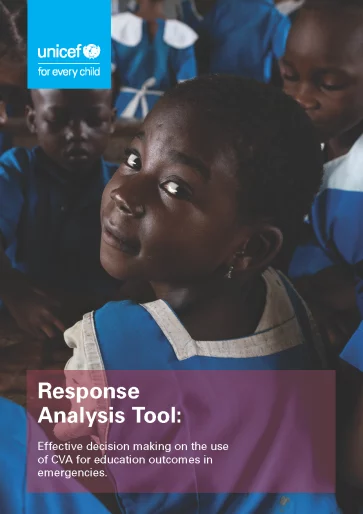
Response analysis tool: Effective decision making on the use of CVA for education outcomes in emergencies
Guidelines and Tools
This Response Analysis Tool aims to equip education actors with guidance and tools to undertake effective response analysis, contributing to the design and implementation of quality, effective and consistent cash and voucher assistance (CVA) for education outcomes. Guidance is presented under four steps...

Perception survey of aid recipients in Somalia
Report
Before the first case of COVID-19 was officially confirmed on 16 March 2020, Somalia was in a state of emergency resulting from the worst locust infestation in 25 years. With food supplies already under threat, the infestation was exacerbated by heavy floods, which not only displaced half a million...
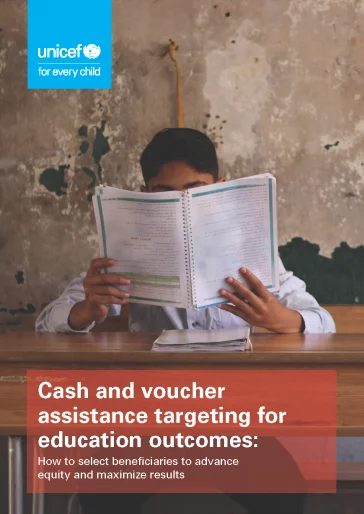
Cash and voucher targeting for education outcomes: How to select beneficiaries to advance equity and maximize results
Guidelines and Tools
UNICEF has developed this targeting guidance to support scaling up of CVA in a way that maximizes outcomes for education in emergencies (EiE) responses, especially regarding the retention of girls in education. This is in recognition of the wider barriers to accessing and remaining in school that girls,...
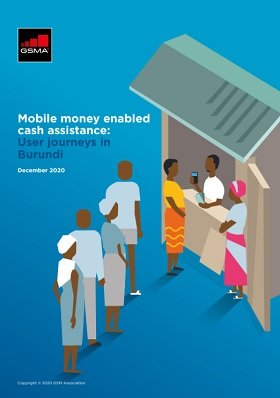
Mobile money enabled cash assistance: User journeys in Burundi
Report
GSMA’s Mobile for Humanitarian Innovation programme teamed up with Ground Truth Solutions to apply a human-centred design approach to understand the user journeys of Concern Worldwide’s cash recipients in Burundi. It provides insights into how humanitarian organisations and mobile money providers can...

The Environmental Implications of Cash Transfers
Report
In recent years, the use of the “cash” modality in humanitarian programmes has grown exponentially. Some actors also put forward, among others things, their environmental benefits. The main hypothesis being that if items are purchased locally, humanitarian actors will have a reduced carbon footprint....
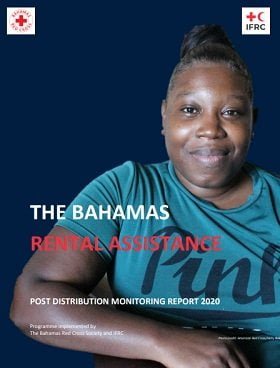
The Bahamas, Rental Assistance, Post Distribution Monitoring Report 2020
Report
This Post Distribution (PDM) Report presents the findings of the Rental Assistance programme in Grand Bahama implemented by The Bahamas Red Cross Society (BRCS) with support of the International Federation of Red Cross and Red Crescent Societies (IFRC). The programme sought initially to provide a...
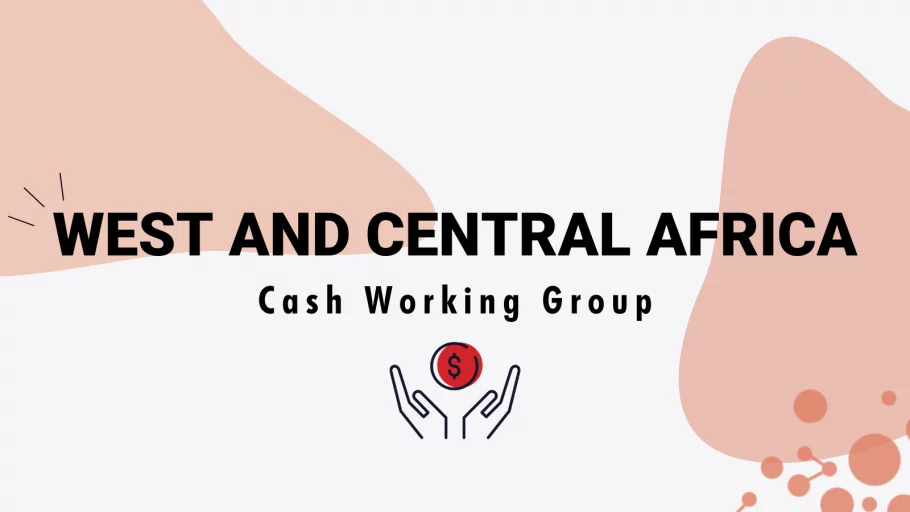
Minutes and recording from the WCAF regional CWG – 9 December 2020
Meeting minutes